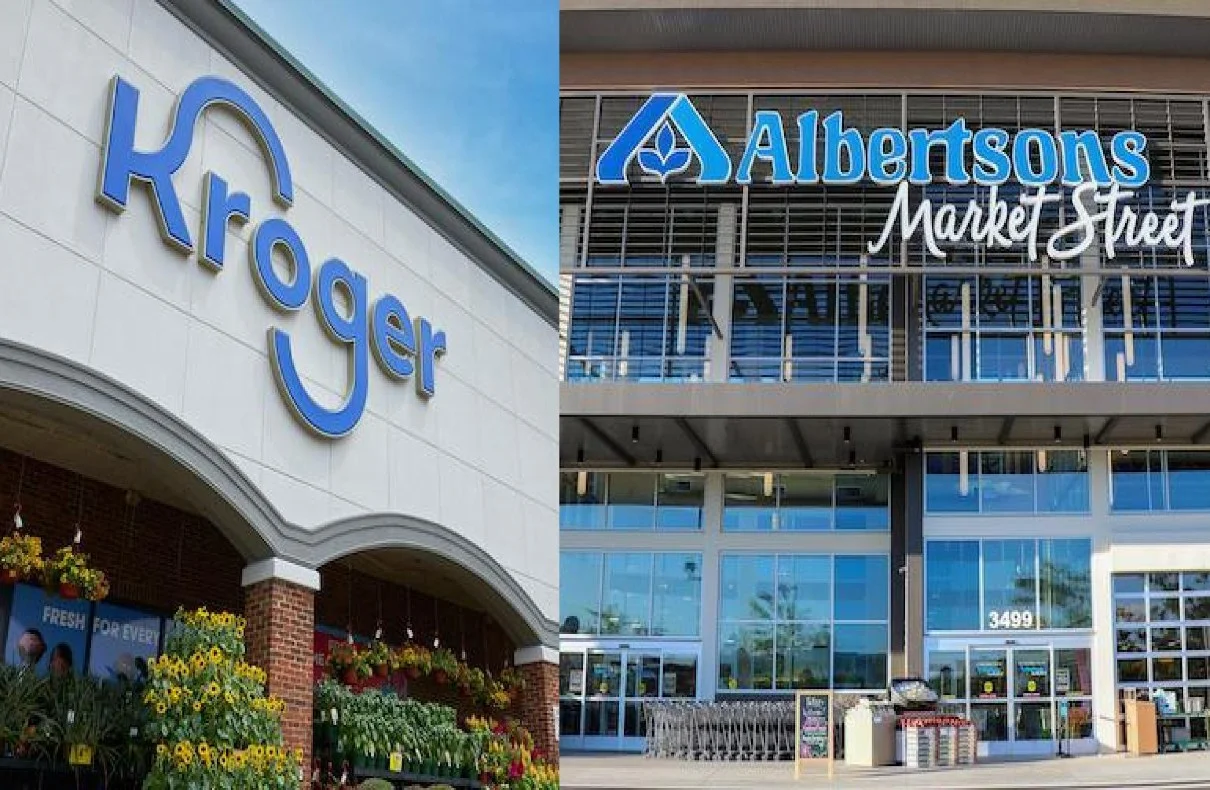
The Federal Trade Commission (FTC) and several state attorneys general have taken legal action to block the proposed merger between Kroger, the supermarket giant, and Albertsons, a well-known grocery chain. This move by the FTC aims to prevent what could potentially be the largest supermarket merger in United States history. The regulator argues that if the merger were to proceed, it would result in a reduction of competition and lead to higher prices for consumers. Additionally, the FTC believes that the merger would negatively impact grocery-store employees’ ability to negotiate for better wages and working conditions.
The proposed merger between Kroger and Albertsons is valued at $24.6 billion, making it a significant deal in the grocery industry. However, the FTC has raised concerns about the potential consequences of such a merger. The agency argues that allowing these two supermarket giants to merge would create a lack of competition in the market, leading to higher prices for consumers.
The Tragic Shooting Incident in Independence, Missouri: A Closer Look
Henry Liu, the director of the FTC’s Bureau of Competition, highlighted the potential impact on consumers, saying, “This supermarket mega-merger comes as American consumers have seen the cost of groceries rise steadily over the past few years.” The FTC believes that the merger would only exacerbate the financial strain that consumers are already facing.
The FTC’s primary concern in blocking the Kroger-Albertsons merger is the negative impact it would have on competition in the grocery industry. The agency argues that reducing the number of supermarkets would limit consumer choice and create a less competitive market. This, in turn, could lead to increased prices and decreased quality of goods and services.
Additionally, the FTC believes that the merger would have an adverse effect on grocery-store employees. With fewer supermarket chains in the market, employees would have less bargaining power to negotiate for higher wages and better working conditions. This could potentially further exacerbate income inequality and financial hardships for workers in the grocery industry.
Mistrial Declared in Former Ohio Deputy’s Murder Trial: What Happens Next?
The FTC, along with several state attorneys general, filed a lawsuit to block the Kroger-Albertsons merger. The lawsuit argues that the merger violates federal antitrust laws and would result in a substantial lessening of competition in the grocery industry. The FTC is seeking a preliminary injunction to halt the merger until a full investigation can be conducted.
The outcome of the lawsuit will depend on the court’s analysis of the evidence presented by both parties. If the court agrees with the FTC’s arguments, it could issue an injunction to prevent the merger from proceeding. However, if the court finds in favor of Kroger and Albertsons, the merger could proceed as planned.
Critics of the proposed merger have expressed their concerns about the potential consequences for consumers. They argue that the merger would limit consumer choice, particularly in regions where Kroger and Albertsons are dominant players. This could result in higher prices and less variety for consumers, as they would have limited options for purchasing household staples.
Moreover, critics highlight the potential impact on smaller, independent grocery stores. With the consolidation of two major supermarket chains, smaller competitors may struggle to compete, leading to a further concentration of power in the hands of the merged entity.
In light of the FTC’s legal action, there may be alternative options for Kroger and Albertsons to consider. One possibility is for the companies to offer concessions or divest certain assets to address the antitrust concerns raised by the regulator. By doing so, they could potentially alleviate some of the FTC’s concerns and increase the chances of the merger being approved.
However, it is ultimately up to the court and the FTC to determine whether any proposed concessions or divestitures would be sufficient to address the antitrust issues at hand. The final decision will be based on a thorough evaluation of the potential impact on competition and consumers.
Lauren Boebert’s Alleged Altercation with Ex-Husband: A Detailed Account
The outcome of the legal battle between the FTC and Kroger-Albertsons remains uncertain. The court will carefully consider the evidence and arguments presented by both parties before making a decision on whether to grant the preliminary injunction sought by the FTC.
Regardless of the court’s decision, the case highlights the importance of competition and consumer protection in the grocery industry. The FTC’s actions demonstrate its commitment to ensuring fair and competitive markets that benefit consumers and support a healthy economy.
As the legal proceedings continue, stakeholders, including consumers, employees, and industry players, will closely monitor the developments and eagerly await the court’s decision on the fate of the proposed Kroger-Albertsons merger.
